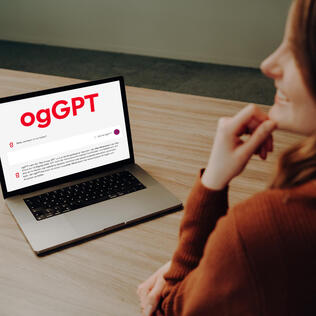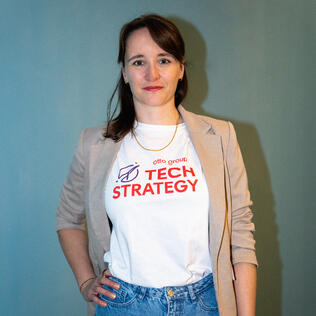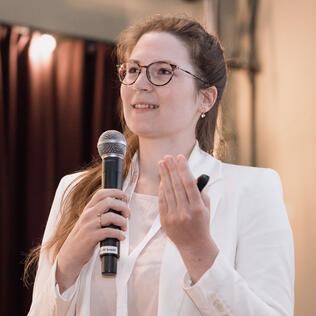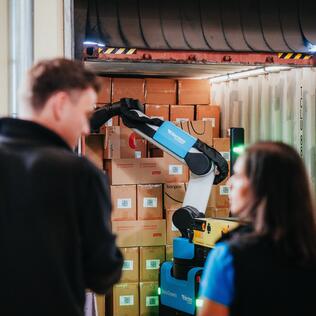Transformation with Technology: ogGPT Simplifies Entry into the AI Age
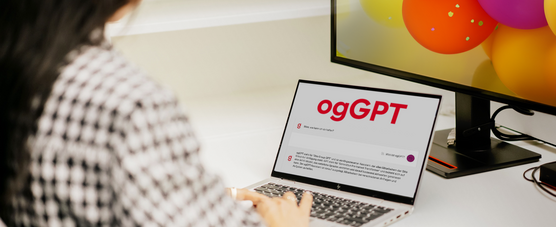
7,000 active monthly users, twelve new functions and more fun at work - that's the quantitative conclusion after one year of ogGPT. Qualitatively, however, it is about much more: the Otto Group's internal AI assistant has not only proven itself as a tool, but has also paved the ground for a new way of working and enabled low-threshold entry into the AI age for many employees. “Kulturwandel” set the course for this.
On September 18, 2023, Alexander Birken gave the go-ahead for ogGPT. His clear appeal: please take the time to experiment with it and gain your own experience in using GenAI. However, there is no obligation to use the AI assistant; the company management does not set any KPIs or target values. This is because ogGPT can be a very powerful tool for day-to-day work. However, the focus is on enabling low-threshold, secure access to AI throughout the Group and thus creating an understanding across the organization of what the technology can – and cannot (yet) do.
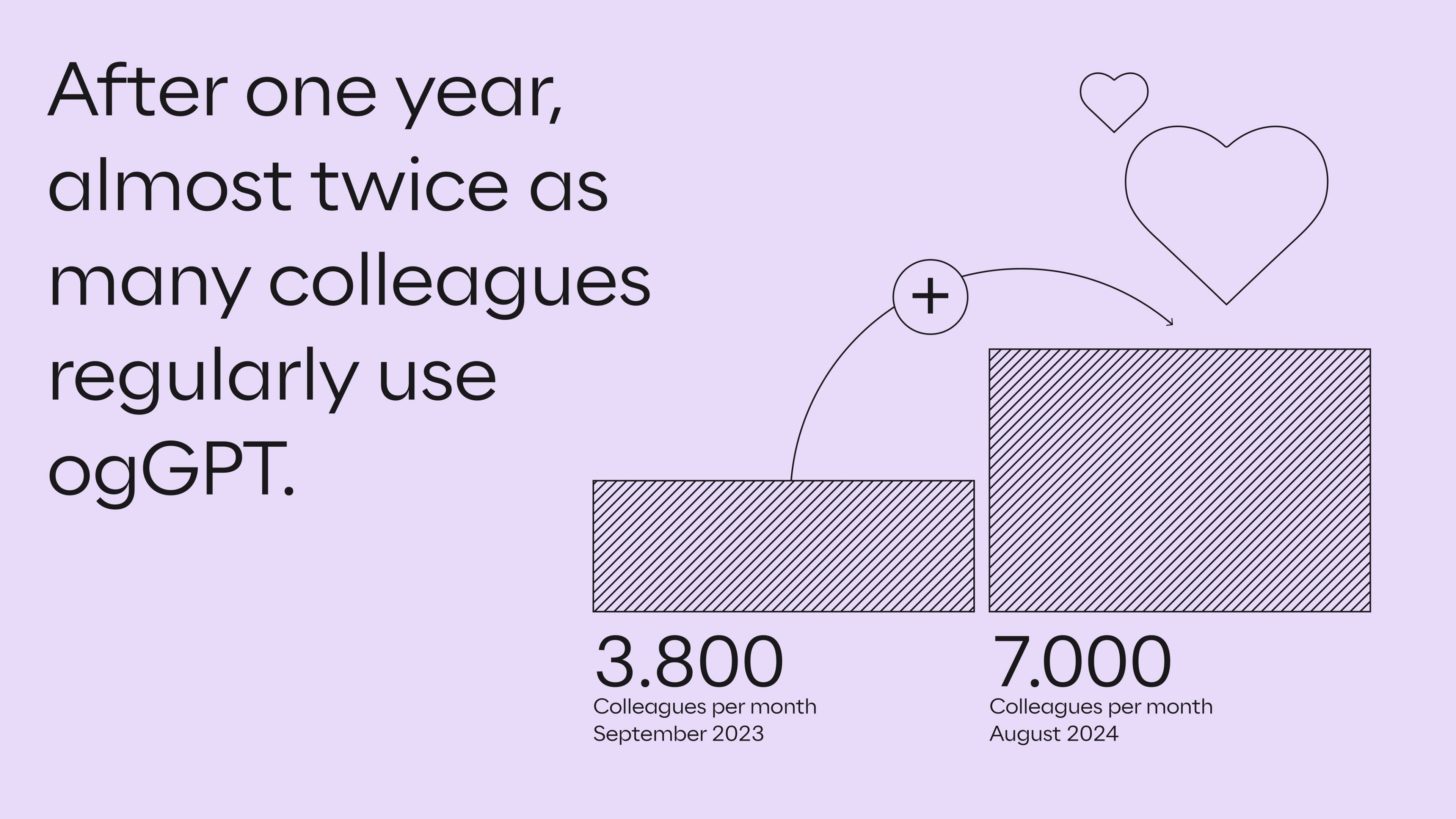
As early as the launch, 3,800 colleagues were actively using ogGPT. An internal survey conducted a few months later revealed that users can save time with the tool and that almost 80 percent even enjoy their work more. Since then, the number of active monthly users has almost doubled, time savings have also continued to increase according to self-assessment and the fun at work has remained – as shown by the most recent user survey in August 2024. A success story that is based not least on the Otto Group's “Kulturwandel” (long-term cultural change process).
Cultural change promotes transformation through and with AI
As part of the “Kulturwandel” process launched nine years ago, the Otto Group has learned to be open to change and to adapt flexibly to new market situations. This involves, for example, transparency, participation, personal responsibility and the ability to learn and adapt. Theis important cultural framework also promotes the willingness to embrace new technologies such as Generative Artificial Intelligence (GenAI) and integrate them into the organization. The capabilities of AI assistants will certainly continue to develop rapidly. Current expansion stages are not yet unfolding the full potential of the technology – we are currently only seeing the tip of the iceberg. Nevertheless, it is essential for the future viability of companies to take a close look at the technological possibilities now and build up key skills for the AI age.
Empowered Employees: Comprehensive offers for further training, networking and inspiration
For this reason, the introduction of ogGPT was and is being comprehensively supported: From intro sessions, in which the basic functionality is explained, and intensive prompting workshops, to the Group-wide "Discover AI" community with its own conference, and hackathons with partners such as Microsoft and Google – the Otto Group relies on a variety of measures to bring all employees along based on their prior knowledge. The focus is on knowledge transfer, skills development and networking. The aim is to enable all colleagues to use GenAI.
Equally important: inspiration. What can I use ogGPT for in my day-to-day work? How do colleagues use it? These questions are an important lever for the adoption of new technologies. An interdisciplinary team offers support with formats such as the "Use Case of the Week", which presents a wide variety of concrete use cases including step-by-step instructions, sample prompts and tips.
On four Mondays in May, everything revolved around the topic of AI: as part of the "mAI" event series, internal experts shared their knowledge and experience in more than 25 practical sessions. The topics ranged from best practice prompting sessions to top use cases for ogGPT, but also went far beyond our AI assistant.
The internal "GenAI@Work" award called for creativity and an innovative spirit: we were looking for specific GenAI use cases that add value to everyday working life – regardless of whether they have already been technically implemented or are still just an idea. Both AI experts and colleagues without in-depth tech knowledge were therefore able to take part. 46 use cases were submitted, which were evaluated and awarded by a jury of experts based on criteria such as adaptability, effectiveness, efficiency, innovation and scalability.
Evolution of ogGPT: Twelve new features for better collaboration and smarter support
ogGPT itself also helps to find use cases for your own day-to-day work. With new functions such as the marketplace, colleagues can share their prompting templates across the company – this not only saves resources, but also shows beginners what the AI assistant can do. The same applies to CustomGPTs, one of the latest features in ogGPT. A CustomGPT is a tailor-made version of the AI assistant that can be created with self-curated data for a specific purpose or topic and shared with individual colleagues, teams or the entire organization. For example, the Otto Group's Tech Strategy has made the group-wide strategic AI guides available as a CustomGPT. Colleagues who are starting a new AI project can ask questions about the responsible use of artificial intelligence and receive information about our five basic principles for Responsible AI.
In addition to numerous UX optimizations, ogGPT has received more than twelve major new functions over the past year – always based on new technological possibilities and the needs of our colleagues.
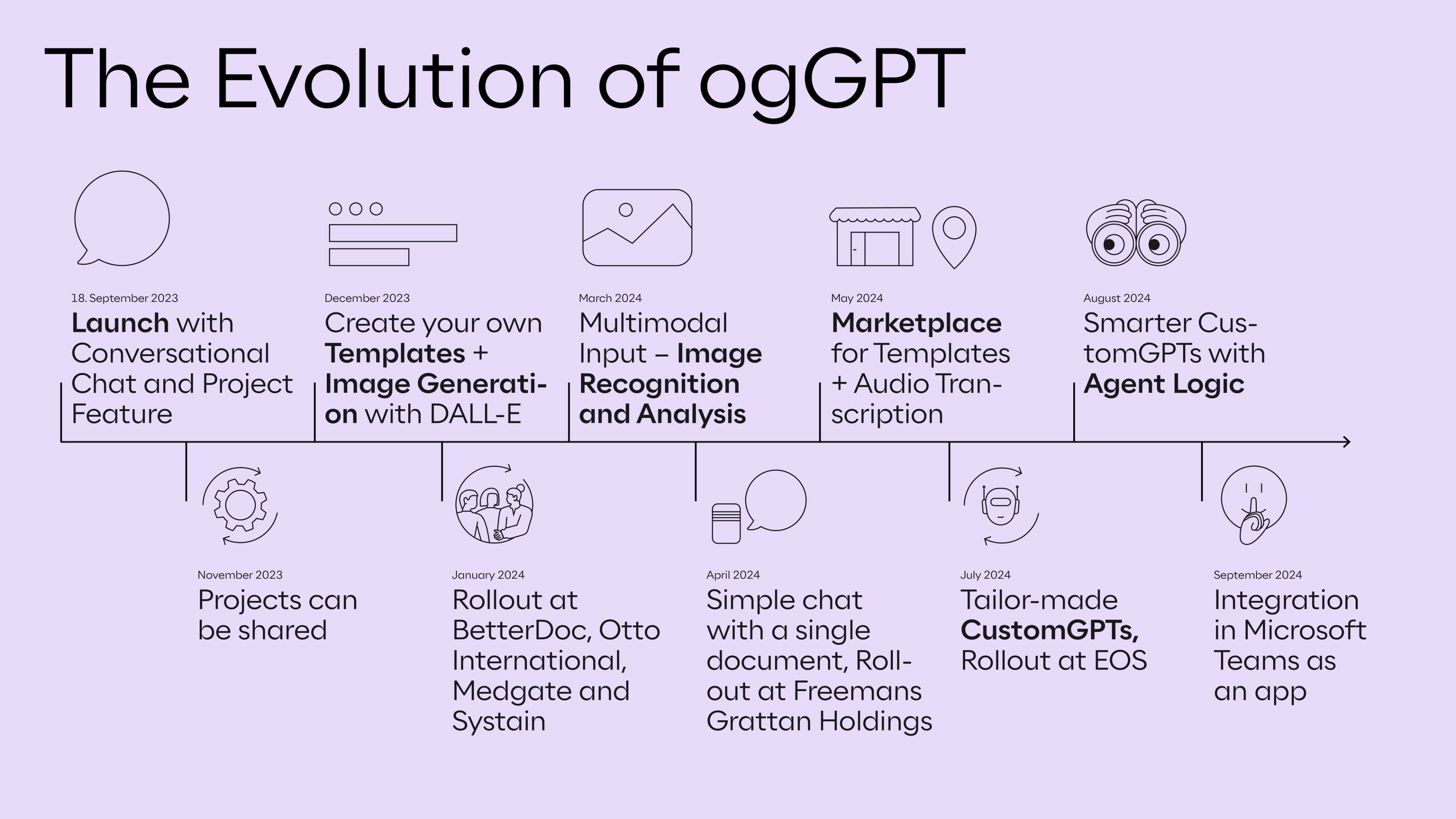
Of course, the evolution of ogGPT is far from over. The interdisciplinary development team is already working on further new functions and ways to integrate the AI assistant even better into everyday working life. And, of course, on suitable measures to familiarize even more colleagues with ogGPT and GenAI in general. We are excited about the future and look forward to ogGPT making our day-to-day work easier even more often.


